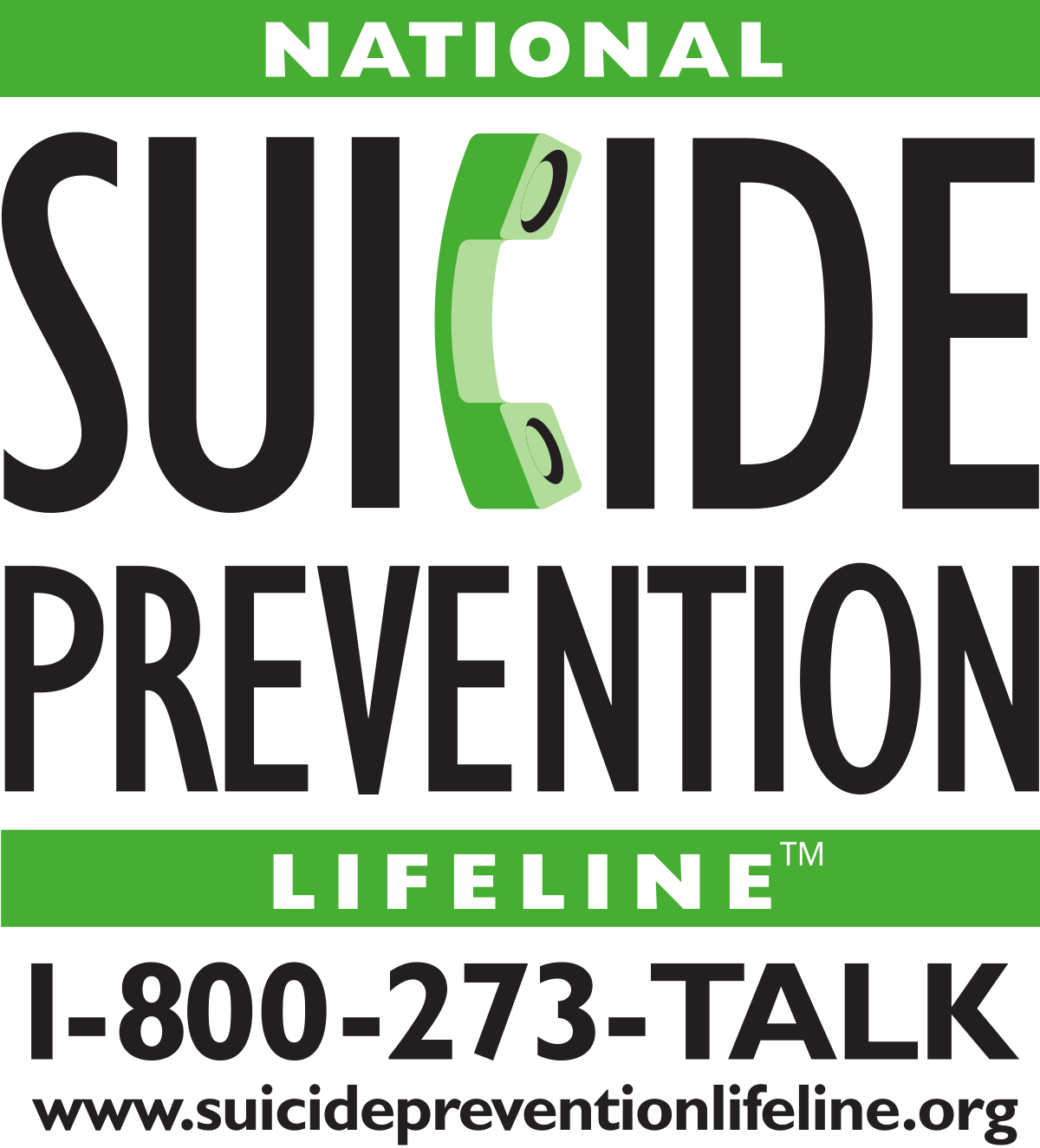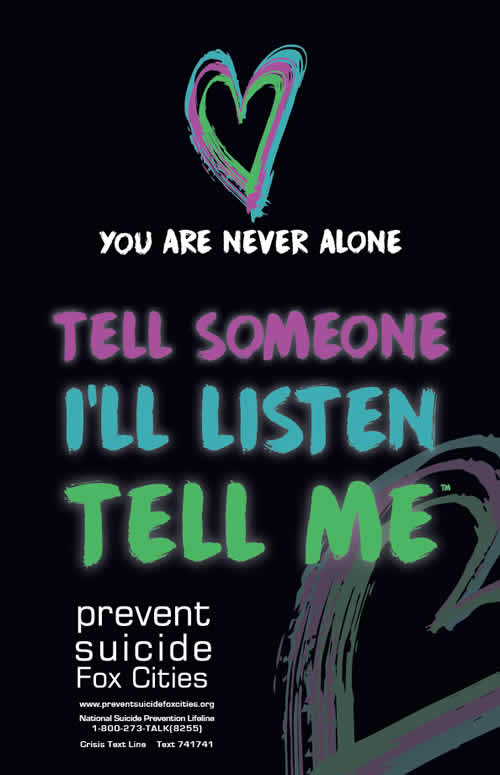24/7 Free and Confidential Lifeline
988 Suicide & Crisis Lifeline - 24/7 Text, Talk, Chat
What Can I Do to Help a Suicidal Person?
- Learn the warning signs, risk factors, and protective factors surrounding suicide so you can better identify someone who may be depressed or suicidal. Honestly address your feelings about the issue.
- Get comfortable with thinking about and discussing suicide, death, and guilt so that you can talk with others without fear. If you are not comfortable talking about these topics, others will not be either.
- When approaching someone who may be depressed or suicidal, be willing to listen. Allow expression of all of their feelings like rage, sadness, crying, and loneliness. Try not to appear shocked at anything they tell you and be as non-judgmental as possible. Do not try and debate whether suicide is right or wrong, or whether their feelings are good or bad. Do not lecture them on the value of life. Listen as openly as possible to everything they are saying. Many times, they need someone to listen and hear their fears and thoughts out loud.
- Never promise confidentiality. You may not be able to keep that promise. If they ask you to, you can say, “I care about you too much to not get help for you if I can. If I can find a way to help you feel better, I may have to tell someone what you told me. It’s more important that you stay alive. You’re just too important to me.”
- Ask them directly if they have been thinking about suicide or homicide or harming themselves. You can restate this depending on the age, such as: “Are you thinking you don’t want to be here anymore? Are you thinking that it’s too hard to stay alive anymore?” You want to find out if they have: Suicidal thoughts and plans. If they have a plan, ask exactly what it is they intend to do.
- Never dare a person to attempt suicide.
- Stay with them. Do not leave them alone. Most suicides occur when people are alone.
- Call 911 if there is ANY indication you / others may be in critical danger.
- Call others to be with you. Don’t try to handle this alone.
- Get help for the person. Call a doctor, therapist, family member or crisis center for help. Be available and show interest and support for them.
Question, Persuade, Refer
QPR: CPR for Suicide Prevention
Question the person about suicide Persuade the person to get help Refer them for help.
Suicide Prevention Gatekeepers - A gatekeeper is someone trained to recognize a suicide crisis and, because of their training, know how and where to find help.
Why QPR for Suicide Prevention Gatekeepers? QPR gatekeeper training takes just 90 minutes and is taught in a format that is clear, concise, and applicable for a wide variety of audiences. Gatekeepers are given information that is easy to understand, and reinforced by a QPR booklet and card complete with warning signs, methods to encourage a person to get help and a list of resources available in your community.
Who Teaches QPR Gatekeepers? QPR was created and developed by Paul Quinnett, Ph.D. of Spokane, Washington. Dr. Quinnett began a QPR Instructor Certification Program to allow qualified candidates to teach QPR and increase the number of people trained to act in a bold, positive manner to prevent a suicide and save a life.
Ask a Question, Save a Life How QPR Differs from Other Suicide Prevention Programs
QPR recognizes that even socially isolated individuals usually have some sort of contact within their community (e.g. family, doctors, teachers, employer, banker, counselor, etc.)
QPR teaches diverse groups within each community how to recognize the "real crisis" of suicide and the symptoms that accompany it.
QPR addresses high-risk people within their own environments (verses requiring the individual to initiate requests for support or treatment on their own).
QPR offers the increased possibility of intervention early in the depressive and/or suicidal crisis (when the level of suicide may be less).
QPR encourages the gatekeeper to take the individual directly to a treatment provider and/or community resource.
QPR stresses active follow-up on each intervention that occurs.
The individual trained in QPR often plays a pre-existing role in the at-risk person's life. This increases the sense of continuity, support likelihood of a positive resolution.
For More Information or to Schedule QPR Training Please Contact Prevent Suicide Fox Cities:




